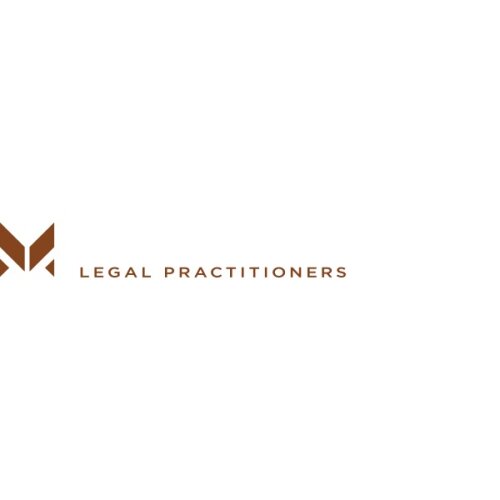Best Energy, Environment & ESG Lawyers in Zambia
Share your needs with us, get contacted by law firms.
Free. Takes 2 min.
Or refine your search by selecting a city:
List of the best lawyers in Zambia
About Energy, Environment & ESG Law in Zambia
Energy, Environment and ESG (Environmental, Social and Governance) law in Zambia encompasses the legal frameworks that govern how natural resources are used, how environmental protection is maintained, and how businesses uphold social and governance standards. Zambia is rich in natural resources, including minerals, water, and forests, making these legal areas critically important. Energy law typically covers the production and distribution of power, particularly in the hydropower and mining sectors, while environmental law focuses on the sustainable use and protection of Zambia’s diverse ecosystem. ESG considerations are increasingly influencing both local and international investment, placing businesses under growing scrutiny to maintain responsible and ethical operations.
Why You May Need a Lawyer
Many individuals and businesses in Zambia may find themselves needing legal assistance within the fields of energy, environmental protection, and ESG compliance. Here are some common scenarios:
- Securing permits and licenses for energy or mining projects
- Addressing regulatory issues with government agencies like the Zambia Environmental Management Agency
- Ensuring compliance with environmental standards to avoid fines or shutdowns
- Handling land acquisition or compensation for energy projects
- Resolving disputes over resource access or pollution claims
- Navigating complex reporting requirements for ESG, especially for companies seeking international investment
- Setting up renewable energy projects or investing in green technologies
- Advising on liability issues for environmental damage
A specialized lawyer can help you interpret regulations, file documents correctly, advocate for your position before authorities, and provide guidance on best practices in sustainability and corporate governance.
Local Laws Overview
Zambia’s legal environment for Energy, Environment, and ESG is shaped by a variety of statutes, regulations, and policies. Key aspects include:
- The Energy Regulation Act and Electricity Act, which establish the regulatory frameworks for energy production, distribution, and tariffs in Zambia
- The Environmental Management Act, which outlines environmental protection standards, including Environmental Impact Assessments (EIA), pollution control, and waste management
- The Mines and Minerals Development Act, which regulates mining activities and contains provisions for sustainable exploitation of resources and reclamation of mining sites
- Renewable Energy Policy, which encourages investment in solar, wind, biomass, and other green energy sources to diversify the national energy mix
- The Zambia Development Agency Act, which touches on ESG compliance for businesses pursuing investment incentives
- Numerous guidelines and regulations from agencies such as the Zambia Environmental Management Agency and Energy Regulation Board
Understanding and abiding by these laws is essential not only for legal compliance but also for maintaining good business reputations and securing financing, especially from international partners.
Frequently Asked Questions
What types of projects require Environmental Impact Assessments in Zambia?
Most large-scale projects, especially in mining, energy production, construction, and agriculture, require Environmental Impact Assessments (EIAs) before they commence. The requirements are detailed in the Environmental Management Act and enforced by the Zambia Environmental Management Agency.
Who regulates the energy sector in Zambia?
The Energy Regulation Board is responsible for regulating electricity, petroleum, and renewable energy sectors in Zambia. It issues licenses, sets tariffs, and monitors compliance with industry standards.
Are there incentives for investing in renewable energy?
Yes, Zambia offers various incentives such as tax breaks or duty-free importation of equipment for renewable energy projects. These incentives are detailed under the Renewable Energy Policy and administered through relevant authorities.
What are common environmental offences in Zambia?
Common offences include operating without required permits, discharging pollutants without authorization, failure to conduct EIAs for required projects, and non-compliance with waste management or pollution standards.
How does ESG impact businesses in Zambia?
ESG standards are becoming increasingly important for businesses seeking investment, particularly from international sources. Adhering to ESG norms can open up new funding opportunities, improve reputation, and ensure compliance with global supply chain expectations.
What penalties exist for violating environmental laws?
Penalties range from fines and orders to halt operations, to criminal prosecution in severe cases. The Zambia Environmental Management Agency can also order restoration of damaged environments at the expense of the violator.
Do local communities have rights concerning energy or mining projects?
Yes, local communities have rights under Zambian law to be consulted about projects that affect them. Compensation, resettlement, or benefit-sharing schemes may also be required in some cases.
What is the process for obtaining energy permits in Zambia?
Applicants must apply to the Energy Regulation Board, undergoing an assessment process that includes technical reviews, safety evaluations, and sometimes public consultations or environmental assessments.
How can a company demonstrate ESG compliance?
Companies can demonstrate ESG compliance by adopting robust policies, monitoring and reporting performance, engaging stakeholders, and aligning with relevant frameworks like the Global Reporting Initiative or United Nations Sustainable Development Goals, where applicable.
Where can I seek help if I have a legal problem in these areas?
You can contact specialized law firms, government regulatory bodies, or industry associations. It is often advisable to consult with a lawyer who has expertise in energy, environment, or ESG matters to ensure proper guidance.
Additional Resources
Here are some key organizations and resources in Zambia where you can seek further information or assistance:
- Energy Regulation Board (ERB): The main regulator for the energy sector including electricity and renewables
- Zambia Environmental Management Agency (ZEMA): Oversees environmental regulation, EIAs, pollution control, and compliance monitoring
- Ministry of Green Economy and Environment: Responsible for policies on sustainable development, climate change, and environmental conservation
- Ministry of Energy: Handles policies and initiatives in the energy sector
- Zambia Development Agency (ZDA): Supports investments and provides information on incentives, permits, and approvals
- Zambia Chamber of Mines: Offers guidance for companies operating in the mining industry, including ESG issues
- Local Bar Associations and Legal Aid Boards: For legal referrals and assistance
Next Steps
If you are seeking legal assistance regarding energy, environmental, or ESG matters in Zambia, start by clearly identifying the issue you are facing and gathering any related documentation. Research and contact specialized lawyers or law firms with experience in these areas. Consider reaching out to relevant governmental bodies if you need specific permits or clarification on regulatory compliance. Many organizations also offer public consultations or have help desks to support stakeholders. Engage early with legal experts to ensure you follow the appropriate legal procedures and avoid costly mistakes.
Lawzana helps you find the best lawyers and law firms in Zambia through a curated and pre-screened list of qualified legal professionals. Our platform offers rankings and detailed profiles of attorneys and law firms, allowing you to compare based on practice areas, including Energy, Environment & ESG, experience, and client feedback.
Each profile includes a description of the firm's areas of practice, client reviews, team members and partners, year of establishment, spoken languages, office locations, contact information, social media presence, and any published articles or resources. Most firms on our platform speak English and are experienced in both local and international legal matters.
Get a quote from top-rated law firms in Zambia — quickly, securely, and without unnecessary hassle.
Disclaimer:
The information provided on this page is for general informational purposes only and does not constitute legal advice. While we strive to ensure the accuracy and relevance of the content, legal information may change over time, and interpretations of the law can vary. You should always consult with a qualified legal professional for advice specific to your situation.
We disclaim all liability for actions taken or not taken based on the content of this page. If you believe any information is incorrect or outdated, please contact us, and we will review and update it where appropriate.
Browse energy, environment & esg law firms by service in Zambia
Zambia Attorneys in related practice areas.
Browse energy, environment & esg law firms by city in Zambia
Refine your search by selecting a city.
















